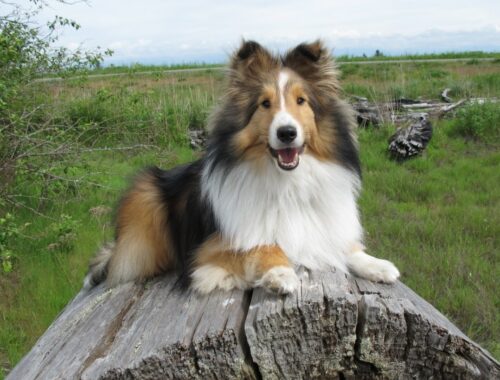Question: My dogs refuse to eat their dry dog food. What can I do to get them to eat?
I have two female Dachshunds age 2 years. Recently they have both walked away from their dry dog food. I have been giving them the Healthy Weight Hill’s Science Diet for small breeds for about 1 year. What can I do to get them to eat? Do I need the change the food?. Extremely healthy dogs and they are sisters. Thank you so much.
– Cherie
Answer:
Dear Cherie,
Your Doxies are super cute! Thanks for sending in your question.
Wouldn’t it be nice if your dogs could tell you what’s on their minds? Until they learn to speak English, you’ll have to try to interpret dog language.
First, don’t assume they’re just being picky. It could be that, but there could be another issue. I can think of five possible explanations for your dog’s behavior:
Food Is “Off”
Remember that dogs have an exquisitely sensitive sense of smell. An animal who can smell a human buried under 10 feet of earthquake rubble might easily be turned off by food that is stale or rancid. Even if it smells OK to you, your dog might think it smells bad.
The first thing you can try is to throw away your current bag of food and buy a small, fresh bag of the same food. Look for the “best by” stamp on the package and make sure it’s not any time soon.
Only buy enough dry dog food to last a couple of weeks and you’ll have less chance of winding up with “off” food your dogs won’t eat. If you must buy a larger bag of food, keep it in your refrigerator to help it stay fresher.
Your Dogs Have a Food Preference
Science Diet Adult Perfect Weight dry dog food is a low-calorie, low-fat food. Fat adds flavor and palatability to dog food. Your dogs may have decided they want more flavor in their daily routine.
Try adding some low-calorie food toppers to spice things up. Chicken or beef broth bought in a can or carton is almost always low in fat and calories but will add some flavor. Some dogs enjoy canned or frozen green beans as a low-calorie addition to their dry dog food.
Dogs who eat snacks and treats may prefer the taste over that of low-calorie dry dog food. They may be holding out for the tastier food to satisfy their appetites. Try discontinuing all snacks and treats for a few days to see if they’ll eat the dry food again.
If you decide to try a different type of food, most dogs do best if you change gradually to the new food over a period of seven days. Otherwise, upset stomachs and diarrhea can complicate the situation.
Behavioral Issues
There are many behavioral/psychological issues that might throw a dog off their normal eating routine. Changes in the home, stress between family members, new pets, new people, etc. can make dogs anxious. Anxiety is an appetite suppressant for some dogs. Think about how you can help your dog feel more secure.
Keep feeding time peaceful and very consistent. Speak to your dogs in a positive tone of voice and praise them when they approach and eat their meals.
If the two dogs are competitive at meal time, separate them far enough so they both feel secure. Keep an eye on them to prevent stealing until they finish all their food, too.
Health Issues
If you’ve tried all the things already mentioned and your dogs still don’t eat the way you expect them to, have them both checked by your veterinarian. Health issues can cause a decrease in appetite. Problems that might affect both dogs at the same time include parasites, viral and bacterial diseases.
Dogs Are Eating Enough Already
It’s possible your dogs are overfed. Some dogs will eat and eat and eat, but others eat only until their appetite is satisfied.
People often complain to me that their dog hardly eats anything. Then I look at their dog and most of the time they’re a normal weight or even overweight. If your dogs are not underweight, it’s possible they’re eating as much as they need even if it doesn’t seem like much to you.
Hope that helps give you some ideas on how to approach your problem. Best of luck to you and your four-legged friends!
Sincerely,
TB Thompson DVM
Disclaimer: Your use of the Ask The Vet feature is subject to the Ask The Vet Terms of Use.
































